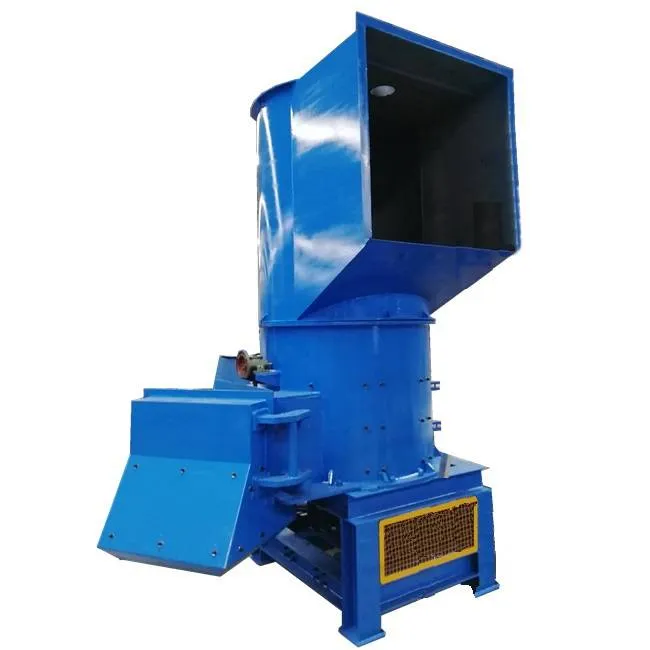
9 月 . 11, 2024 01:50 Back to list
Non-Ferrous Metal Separation Techniques and Importance
The field of metal recycling is crucial for sustainable development and resource management. Among the various types of metals, non-ferrous metals hold significant value in recycling processes. Non-ferrous metals, such as aluminum, copper, lead, nickel, and zinc, are distinguished from ferrous metals by their lack of iron content, which makes them resistant to rust and corrosion. The efficient separation and recycling of these metals are essential for both economic and environmental reasons.
Importance of Non-Ferrous Metal Separation
The demand for non-ferrous metals has surged due to their applications in various industries, including construction, automotive, electronics, and packaging. As a result, the recycling of non-ferrous metals has become increasingly vital. Recycling non-ferrous metals not only conserves natural resources but also reduces energy consumption and greenhouse gas emissions. For instance, recycling aluminum saves up to 95% of the energy required to produce it from raw materials. Efficient separation ensures that high-quality metal is recovered, maintaining its integrity and market value.
Techniques for Non-Ferrous Metal Separation
Various techniques are employed to separate non-ferrous metals from a mixture of materials. These methods can be broadly categorized into mechanical separation, chemical separation, and electrical separation.
1. Mechanical Separation This technique involves physical processes to separate metals based on their size, shape, and density. Common methods include shredding, screening, and air classification. For instance, metals can be shredded into smaller pieces to facilitate sorting. Air classifiers utilize differences in density and aerodynamic properties to separate lighter non-ferrous materials from heavier ones.

2. Magnetic Separation While non-ferrous metals do not respond to magnetic fields, this technique is often employed to first remove ferrous metals from a mixture. Once ferrous metals are eliminated, operators can focus on isolating non-ferrous metals through other methods.
3. Eddy Current Separation This is a highly effective technique specifically for separating non-ferrous metals from other materials. In this process, materials pass through an eddy current separator, which generates a magnetic field that induces electrical currents in conductive non-ferrous metals. This results in a repulsive force that ejects non-ferrous metals from the waste stream, allowing for their recovery.
4. Hydrometallurgical and Pyrometallurgical Processes For certain applications, chemical methods are used for the separation of non-ferrous metals. Hydrometallurgical processes involve using aqueous chemistry to extract metals from ores or recycled materials, while pyrometallurgical methods utilize high-temperature processing to achieve metal recovery.
Challenges and Future Directions
Despite the advances in non-ferrous metal separation technologies, challenges remain. The presence of contaminants and the increasing complexity of electronic waste hinder efficient separation. Improving the efficiency and effectiveness of sorting techniques, along with investing in research and development, will be crucial in overcoming these obstacles.
The future of non-ferrous metal recycling appears promising, with growing awareness of its environmental benefits. Emerging technologies, such as machine learning and automation, hold the potential to enhance separation processes further. As the global economy continues to evolve, the demand for recycled non-ferrous metals will increase, making effective separation more important than ever.
In conclusion, non-ferrous metal separation is a vital process in the quest for sustainability. By employing a combination of mechanical, magnetic, and chemical techniques, we can recover valuable metals while minimizing environmental impact. As technology progresses, efficient separation methods will play a key role in achieving a more circular economy and reducing our reliance on finite natural resources.
Latest news
Unveiling the Power of Eddy Current Separator
NewsSep.25,2024
Transform Your Home Recyclin:home metal shredder
NewsSep.25,2024
The Future of Waste Management with Recycling Line Picker
NewsSep.25,2024
The Benefits of a Metal Recycling Plant
NewsSep.25,2024
Revolutionize Material Separation with Onwang Technology
NewsSep.25,2024
Innovative Waste Management: Unveiling the MSW Sorting Plant
NewsSep.25,2024